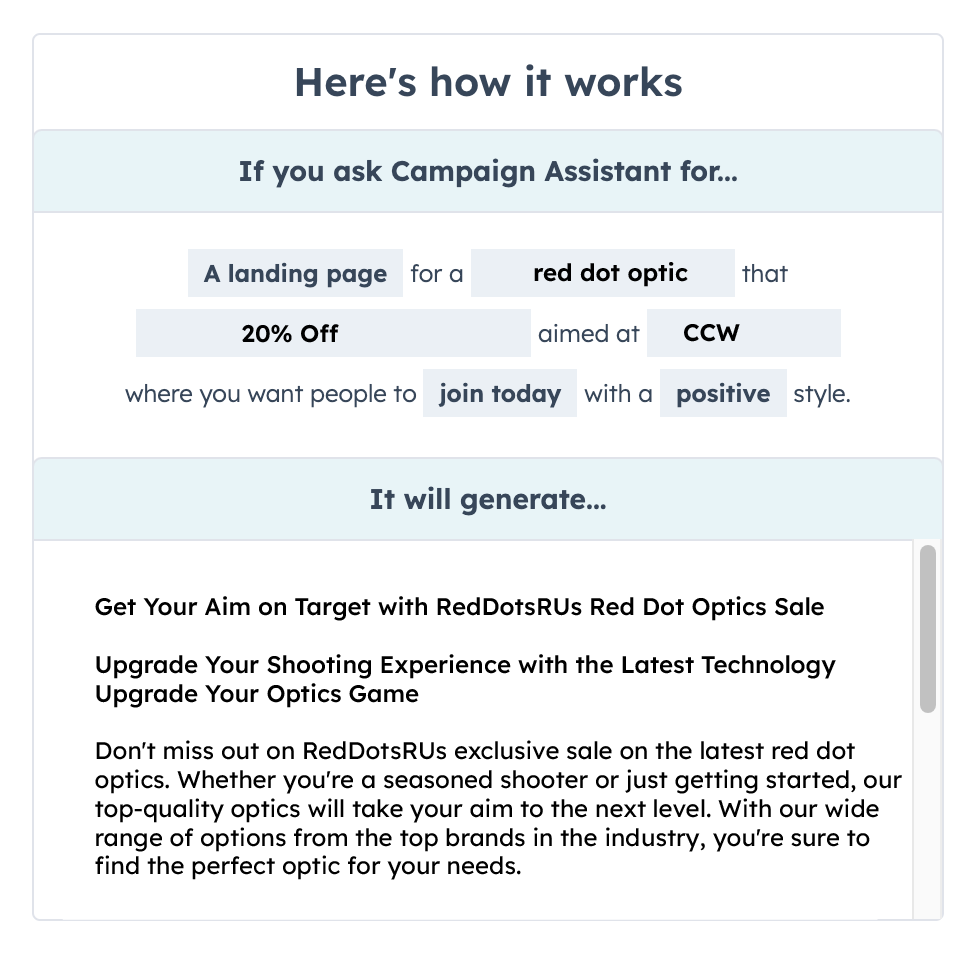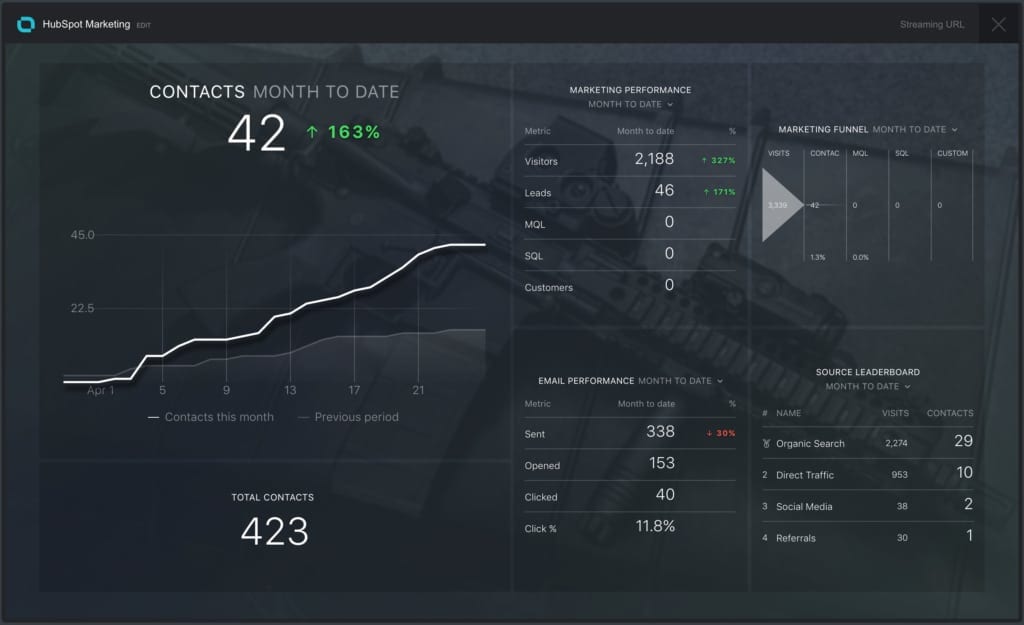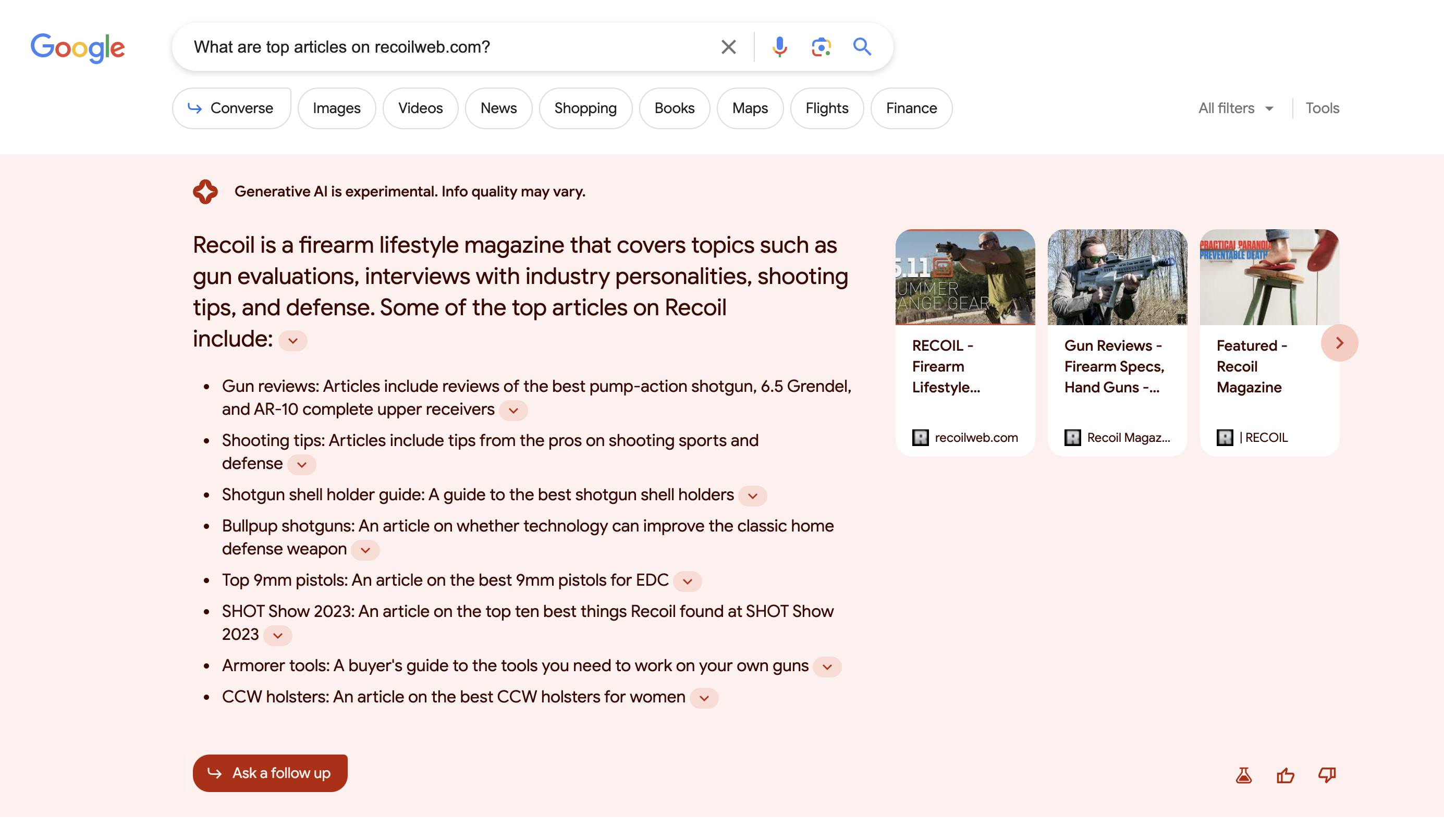
Imagine knowing what email subject line always gets the highest open rate, what media buy offers the best value, and what combination of graphics, products, text, and CTAs produce the greatest results.
If you’re still skeptical on what you hear about artificial intelligence or AI for short, consider this post an introduction to help you understand what most are calling the “next industrial revolution.”
As more demands are put on marketers in the ultra-competitive firearms industry—an added advantage can mean the difference between who gets to market first and who doesn’t. We all know a great product goes a long way, but a great product with great marketing dominates.
We all know a great product goes a long way, but a great product with great marketing dominates.
For most of us, data can be a good thing—but it can also be a digital firearm marketer’s worse nightmare. With more and more data streaming in from social media, search engines, email marketing, automation, trade shows, banner ads, influencer platforms and others—data is or has become something of a curse. The term: “Paralysis by analysis” comes to mind.
That’s the irony with data-driven marketing. We have spreadsheets upon spreadsheets and dashboards upon dashboards—but do we really know what to do with it all? On any given day, you make a lot of small decisions that can have a significant impact on results:
- What time should I send my email newsletter?
- What topic should I write my next blog post on?
- Should it be a blog post, or should it actually be a video?
- What is a good social media post to grab attention?
- And for that CTA in the conclusion, what color will actually make people click?
Thankfully, all of these questions can now be answered by artificial intelligence. (Source: HubSpot)
What is AI?
Artificial intelligence first and foremost isn’t what you’ve been led to believe in the movies. It doesn’t mean we’ll be under the rule of evil sentient beings i.e. the Terminator—or an army of robots seeking to take over the world—not yet anyways. Titans like Elon Musk and others say its time to pump the brakes.
What it does mean is that man and machine will work together as a team.
Artificial intelligence is the “science of making machines smart,” says Demis Hassabis founder and CEO of AI company DeepMind (which was acquired by Google). At a basic level, “smart” means achieving a goal by mimicking human cognitive functions. That goal could be winning a board game, correctly identifying a cat in a photo, adeptly using data from sensors to drive a car or anything else a human can do.
There are many forms of AI already in existent. You might recognize a few already:
- Siri by Apple
- Maps by Apple
- Watson by IBM
- Einstein by Salesforce
- Alexa by Amazon
- Spotify Music Suggestions
- Facebook face/tag recognition
How AI will help you
How AI correctly can be applied to the firearms industry is the same for other industries. Companies with large eCommerce stores like Guns.com or Brownells.com may be the ones to benefit most from AI to help them analyze user data and trends. Apps like Optimizely, CrazyEgg and others are being used to track customer behavior, create segmentation and content that optimize website sales.
Other cutting edge manufacturers like Beretta who was one of the first to adopt marketing automation can adopt AI to analyze trends through their programs to send cross-sell and upsell email offers to their contacts at the right place and at the right time.
Tools like Databox can aggregate data from your entire Martech stack and give you a way to improve KPIs across the board based on accurate and definitive data that can be understood—and provide predicable analysis. Perhaps even a print ad in Guns and Ammo may be possible to be optimized by generative image AIs like Adobe Firefly. However, the word “guns” or “firearm” violates their terms and conditions. A harbinger of bans and restrictions to come.
“AI is about automating known tasks without distraction. As humans, we get easily distracted. AI can operate without distractions and without wasting time, making AI teams more efficient,” says Digital Visionary, Kevin Kelly.
How AI can help you market more effectively
AI marketing assistants
If you’re looking to get started with AI firearms marketing, I recommend checking out ChatGPT, ChatSpot.ai, or turn on the Generative AI function in your Chrome Browser.
Here’s a recent inquiry I typed into Google’s search bar: What are the top articles on recoilweb.com? The results were interesting. This kind of research can help marketers and brands create more impactful content and strategies.
“Your marketing assistant in the future might well be an app that provides advanced analytics information to guide advertising or content-creation efforts to drive traffic to your company’s website,” says Dave Burnett of AOK Marketing.
These apps—most in their beginning stages—will continue to get smarter over time. They will help you save time, make smarter investment/media buying decisions and increase and accelerate revenue.
AI-Powered Websites
Imagine a website you speak to, rather than typing in a search or clicking on the nav bar. A future prospect may visit Springfield Armory’s website, tell the site what they are looking for and then the site serves them three pistols for self-defense along with some videos and training articles—specifically designed and tailored to that known user’s interests.
This type of work is already taking place with companies like Unbounce and CodeWP where all you do is provide direction and the site designs itself.
AI-Powered Marketing Programs
Want to write and design an entire email marketing campaign? No problem, HubSpot’s Campaign Assistant can write you a landing page, email series and ad copy.
 Campaign Assistant is HubSpot’s AI-powered tool that allows you to create landing page copy, marketing email copy, and ad copy for your next marketing campaign.
Campaign Assistant is HubSpot’s AI-powered tool that allows you to create landing page copy, marketing email copy, and ad copy for your next marketing campaign.
You provide information about your campaign, choose a tone of voice that resonates with your brand, and select which type of asset you want to generate, and the tool will produce either a landing page, email, or ad.
Creating campaigns that used to take days can now be accomplished within hours. In the near future, I anticipate that marketing managers will have the ability to input an entire marketing plan, and AI will be capable of designing the copy, images, and assets (logo, website, emails and social media) all in a single automated process.
Better content through AI
Artificial intelligence platform Acrolinx uses a unique linguistic analytics engine to “read” all your content and provide immediate guidance to improve it. “Our technology is transforming how the world’s biggest brands create high-performing content,” says Dr. Andrew Bredenkamp, founder, and CEO. Other companies you should start becoming familiar with is Motiva, Albert, and BoomTrain.
Will AI take away our jobs?
- 300 million jobs worldwide could be disrupted by AI, according to Goldman Sachs.
- $17 trillion to $26 trillion will be added to the global economy by AI, according to McKinsey.
- 83 million jobs worldwide will be lost over the next 5 years because of AI—and 69 million will be created—according to the World Economic Forum. (Resulting in a loss of 14 million jobs during this time.)
Whether or not these distrustful globalist organizations are correct — what you should be doing right now is learning all you can about AI. (Check out Paul Roetzer’s AI Marketing Institute.) How to use it, how it works and how you as a marketer or business owners will fit into the disruptive changes coming soon to our world, industry and marketing as a whole.
As you start to drink out of the fire hose that is AI, it’s important as industry marketers and business owners to think ahead about how we can continue to push the industry forward in terms of technology, attract customers, delight current customers, and how all this wraps into protecting our 2nd amendment rights.
AI is on the brink of making significant impacts across various domains. Historically, regulated industries have shown a delay of 5-8 years in adopting new technologies, but this time, the lag might be shortened to just 1 year. Businesses and marketing teams that proactively take the lead will gain an advantage in what promises to be an intriguing future.
What do you think about AI and how will it effect our industry? Please comment below.
This article was originally published in April of 2017.








